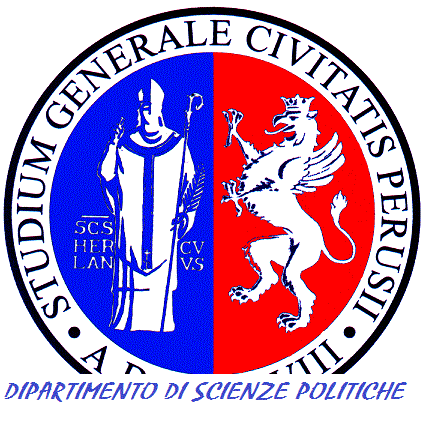
Call for Papers.
Legal immagination(s)
Memos for Law in the third Millennium
Department of Law and Departement of Political Science, University of Perugia, 10-11-12 July 2014
The project is inspired by a Italo Calvino's reflextion: “Since Science has begun to distrust general explanations and solutions that are not sectorial and specialized, the grand challenge for Literature is to be capable of weaving together the various branches of knowledge, the various “codes” into a manifold and multifaceted vision of the world.” (I. Calvino, Memos for the Next Millennium).
Is it the same for Law? The goal of this project is to understand how Law is connected and intertwined with other fields of knowledge.
Currently globalized scholars have to operate in a pluralistic social and cultural context, they need to engage with different legal systems, with a conception of Law characterized by a multilevel perspective and with different disciplines in order to completely understand social phenomena (i.e. economics, politics, sociology and history, etc...).
Object of this initiative is, thus, to incite scholars from different branches of Law and social sciences to dialogue around the creation of new approaches and instruments to analyze and elaborate this changing framework.
This Call for paper is based on an interdiscliplinary approach, in order to promote reflections among scholars on the importance to consider legal experiences and their ability to generate new representations and spaces, both Global and Local.
We would like to receive papers inspired by Calvino’s six general values:
LIGHTNESS –Lightness as an outstanding feature of law in our time: i.e. soft law, “mild law”, “flexible law” (Carbonnier), “gentle law”, law by principles (Dworkin), lightness as thinness of normative acts (see the tools for normative simplification) .
QUICKNESS – Should the Law of this Millennium give more space to quickness? What are the relationships between law and time? And between time and guarantees? The times of justice and the need to develop quick solutions to relevant social issues appear to be widely salient subjects for contemporary legal scholars.
EXACTITUDE – There are many questions implied by exactitude in the field of law: i.e. legal interpretation, the relationship between the legislature (and legislative text) and the judge (and his creative role in “making law”), legal certainty, law as logic, law as experience. Exactitude intended as the ability to reconstruct facts and circumstances and to act according to that truth.
VISIBILITY – Some areas affected by visibility in the field of law: transparency in administration, privacy, contract law, the discovery under the law of civil procedure. But we can talk about visibility as "imagination" also with regard to law as an aesthetic subject, law and literature or law and arts, poetic justice (Nussbaum), the link between revolution and constituent power.
MULTIPLICITY – From a legal perspective multiplicity calls into question both the multilevel system of fundamental rights protection and the idea of “plural” society in which different representations of “global” and “local” coexist. This space is continuously created by means of construction and deconstruction of identities, similarities and differences. It may also be understood as multiplicity and interaction of legal paradigms (private law in administrative law, management in public administration, etc…).
CONSISTENCY – Consistency in the field of law can be articulated in different ways, such as proportionality and the balance of interests, or as consistency between preliminary activity (motivation) and decision.
The Call for papers is open to young researchers (PhD students, postdocs, research fellows) of different legal disciplines, social sciences and humanities.
The workshop will take place at the University of Perugia (Department of Law) on July 10/11/12 2014.
The program will be posted online on the website: http://dirittiecomparazione.wix.com/legalimaginations.
Those interested in presenting papers should send an abstract (max 500 words) and a short curriculum vitae (max. 2000 characters) by June 2, 2014. Abstracts should be sent through the online application form on our website and CVs can be emailed at our email address dirittiecomparazione@gmail.com.
Replies concerning selection will be sent by June 13th, 2014.
Those who will be selected and contacted by the organizing Committee will have to submit a paper of max 50.000 characters (including spaces) by June 30.
The organizing committee reserves the right to publish on-line the submitted papers.
It is planned to publish the Workshop Proceedings.
Free accomodation at the ADISU (Agency for the Right to Education) facilities will be provided for all participants.




